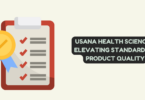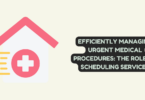
Safeguarding Data in the Digital Age
In today’s digital age, data privacy has become a critical concern for individuals and organizations alike. With the increasing number of data breaches and regulations surrounding data protection, it has become essential for businesses to implement robust privacy compliance platforms. These platforms not only help in safeguarding sensitive data but also ensure compliance with relevant laws and regulations. In this article, we will explore the 15 must-have features of a privacy compliance platform that can effectively protect data and uphold privacy standards.
Data Encryption and Security
One of the fundamental features of a privacy compliance platform is robust data encryption and security measures. The platform should employ state-of-the-art encryption algorithms to protect data at rest and in transit. It should also have stringent access controls and authentication mechanisms to prevent unauthorized access to sensitive information.
Consent Management
Consent management is crucial for organizations to comply with data protection regulations such as the General Data Protection Regulation (GDPR). The privacy compliance platform should provide comprehensive consent management capabilities, allowing users to obtain and manage consent from individuals for data collection and processing activities. It should also enable individuals to revoke their consent if desired.
Data Inventory and Mapping
A privacy compliance platform should offer features for data inventory and mapping. It should allow organizations to identify and classify the types of data they collect and process. Additionally, it should provide a visual representation of data flows and data relationships within the organization, helping to identify potential privacy risks and compliance gaps.
Privacy Impact Assessments (PIAs)
PIAs are essential for organizations to assess and mitigate privacy risks associated with their data processing activities. The privacy compliance platform should facilitate the creation and management of PIAs. It should provide templates, workflows, and automation capabilities to streamline the PIA process, making it easier for organizations to identify and address privacy risks proactively.
Incident Response and Breach Management
Data breaches are a significant concern for organizations, and having a robust incident response and breach management process is crucial. The privacy compliance platform should include features for incident reporting, tracking, and resolution. It should also provide guidance on breach notification requirements and facilitate the timely and appropriate response to data breaches.
User Rights Management
Under data protection regulations, individuals have certain rights regarding their personal data. A privacy compliance platform should include features for managing user rights, such as the right to access, rectify, and erase personal data. It should allow organizations to efficiently handle user requests and demonstrate compliance with these rights.
Auditing and Monitoring
To ensure ongoing compliance, a privacy compliance platform should have robust auditing and monitoring capabilities. It should enable organizations to track data access, usage, and modifications. The platform should generate audit logs and provide real-time alerts for any suspicious activities, helping organizations identify and mitigate potential privacy breaches promptly.
Vendor and Third-Party Management
Many organizations rely on third-party vendors and service providers for various business operations. It is essential to ensure that these vendors comply with data protection requirements. The privacy compliance platform should have features for vendor management, including due diligence assessments, contract management, and ongoing monitoring of third-party data processing activities.
Training and Awareness
Employees play a critical role in data protection and privacy compliance. A privacy compliance platform should offer training and awareness modules to educate employees about privacy best practices, relevant regulations, and the organization’s privacy policies. It should provide interactive training materials and assessments to ensure employees have a solid understanding of their responsibilities.
Integration and Scalability
Lastly, a privacy compliance platform should be highly scalable and capable of integrating with existing IT infrastructure. It should be able to integrate with various systems, such as customer relationship management (CRM) software, human resources management systems (HRMS), and data storage solutions.
Automated Compliance Assessments
A privacy compliance platform should offer automated compliance assessments to streamline the process of evaluating an organization’s adherence to data protection regulations. It should provide predefined compliance frameworks and checklists, allowing organizations to assess their compliance posture and identify areas that require improvement. Automation can save time and effort, ensuring continuous compliance monitoring.
Privacy Policy Management
Maintaining an up-to-date and comprehensive privacy policy is essential for transparency and legal compliance. The privacy compliance platform should include features for managing privacy policies, enabling organizations to easily create, update, and distribute privacy policies to stakeholders. It should also provide version control and track consent changes to demonstrate compliance with evolving privacy regulations.
Data Retention and Disposal
Organizations must adhere to specific data retention periods mandated by regulations or industry standards. A privacy compliance platform should incorporate features for managing data retention and disposal. It should allow organizations to define retention periods for different types of data and automatically trigger data disposal processes when data is no longer needed, reducing the risk of storing unnecessary or outdated information.
Privacy by Design
Privacy by Design is a principle that emphasizes incorporating privacy measures from the outset of system design and development. A privacy compliance platform should promote Privacy by Design by providing guidelines and tools for privacy-aware system design. It should enable organizations to conduct privacy impact assessments during the development lifecycle and ensure privacy considerations are integrated into the design and implementation of systems and processes.
International Data Transfers
In today’s globalized world, many organizations transfer data across international borders. Privacy compliance platforms should address the complexities associated with international data transfers. They should support mechanisms such as Standard Contractual Clauses (SCCs) and Binding Corporate Rules (BCRs) to facilitate lawful data transfers. Additionally, the platform should assist organizations in assessing the adequacy of data protection in recipient countries and implementing necessary safeguards.
Conclusion
As data privacy concerns continue to grow, organizations must prioritize the implementation of robust privacy compliance platforms. The 15 must-have features outlined in this article, including data encryption, consent management, data inventory and mapping, incident response, user rights management, auditing, vendor management, training, integration, and scalability, provide a comprehensive framework for safeguarding data in the digital age. By adopting a privacy compliance platform that encompasses these features, organizations can effectively protect sensitive data, maintain regulatory compliance, and uphold privacy standards in an increasingly complex digital landscape.






